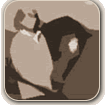 |
|||||||||
|
|||||||||||||||||||
|
|
Simple Pumping System Brings Peace of Mind A small investment has saved both time and money for Lake District beef and sheep farmer Martyn Mawson who farms in a high rainfall and a catchment sensitive area only half a mile above Bassenthwaite Lake.
Martyn his wife Deborah and his parents Standish and Alison have 350 acres of inside land at High Side Farm at the foot of Skiddaw, with 100 rented acres and freehold rights on Bassenthwaite Common. Winter accommodation from the end of October to the first week in May for Limousin cross and threequarter suckler cows is in slatted sheds and there is plenty of underground tank capacity to collect the slurry. However, the yard at one end of the buildings which is next to the silage clamp produces dirty water in the winter which has been collected in an underground tank for about 20 years. “An open gully crosses the other end of the farm steading and runs directly into the lake so we have to be extremely careful to collect everything,” said Martyn. “We had to physically empty the tank and there was always the potential that if it rained heavily during the night that it might overflow. The tank has a capacity of 5,000 gallons and it would take an hour to empty it. Under normal rainfall it would take four days to fill up – but in torrential rain that could only be 12 hours. We get around 68 inches of rainfall a year.” Martyn was at a meeting where he saw a system to pump the dirty water from the tank when the level was activated by a float when he realised that would solve the problem. The pumping system which was installed at High Farm by Aspatria Farmers pipes the dirty water about 400 metres up the fell (100 metres above the farm) where it filters down over gravel in wavy pipes and into the ground. There are no watercourses nearby and the Environment Agency was happy to approve it. The pump takes off the top three feet of water in the tank. A travelling irrigator would not have been possible because of the gradient.
“It’s so simple, and for minimal cost, but it works! It gives peace of mind as it is failsafe and it saves time in keeping the level right,” said Martyn. “It was £3,000 well-spent. We received £900 in grant from the NWDA-funded Farming Connect Cumbria which I heard about around the same time as seeing the pumping system. It was put in in January 2006 and is producing real cost savings in labour, diesel and wear and tear on machinery,” he added. The only disadvantages are that occasionally the filter on the pump can block with grass from short silage so it is checked regularly as well as any sludge removed. The pipe can freeze if it is frosty so it is simply turned off. But a further advantage is that the water can be diverted into the tanks under the slatted buildings and in the slurry lagoon to dilute the muck for easier spreading. The suckler herd is predominantly winter calving and is fed silage and minerals while calves receive a concentrate blend. All herd replacements are home bred to minimise disease risks and to be more self sufficient. Calves are sold at 10 to 12 months old at Carlisle and Wigton marts. Some of the farm’s Swaledale flock is bred pure and the remainder are crossed with home-bred Bluefaced Leicesters. To help the farm’s cash-flow, a proportion of the North of England Mule ewes are now retained and a flock of 200 Mules and Texel crosses plus hoggs produce an earlier prime lamb crop from July through to January with the Texel cross hoggs being put to the Charollais. Martyn and Deborah have capitalised on the traditional features of their farmhouse which dates back to 1668 and through tasteful modernisation created three letting bedrooms with guest sitting and dining rooms in a self-contained annex which attracts visitors from across the UK – and the world.
|
||||||||||||||||||

|
|
||||||||||||||||||
| home | agri-services | pedigree
pen | news | dairy | beef | machinery property | organisations | site map |
|||||||||||||||||||

Article by
Jennifer MacKenzie


